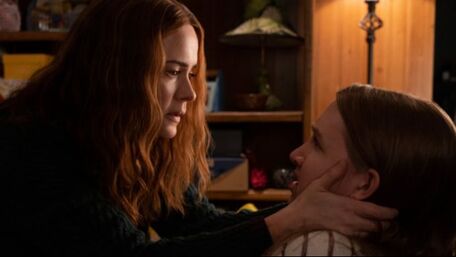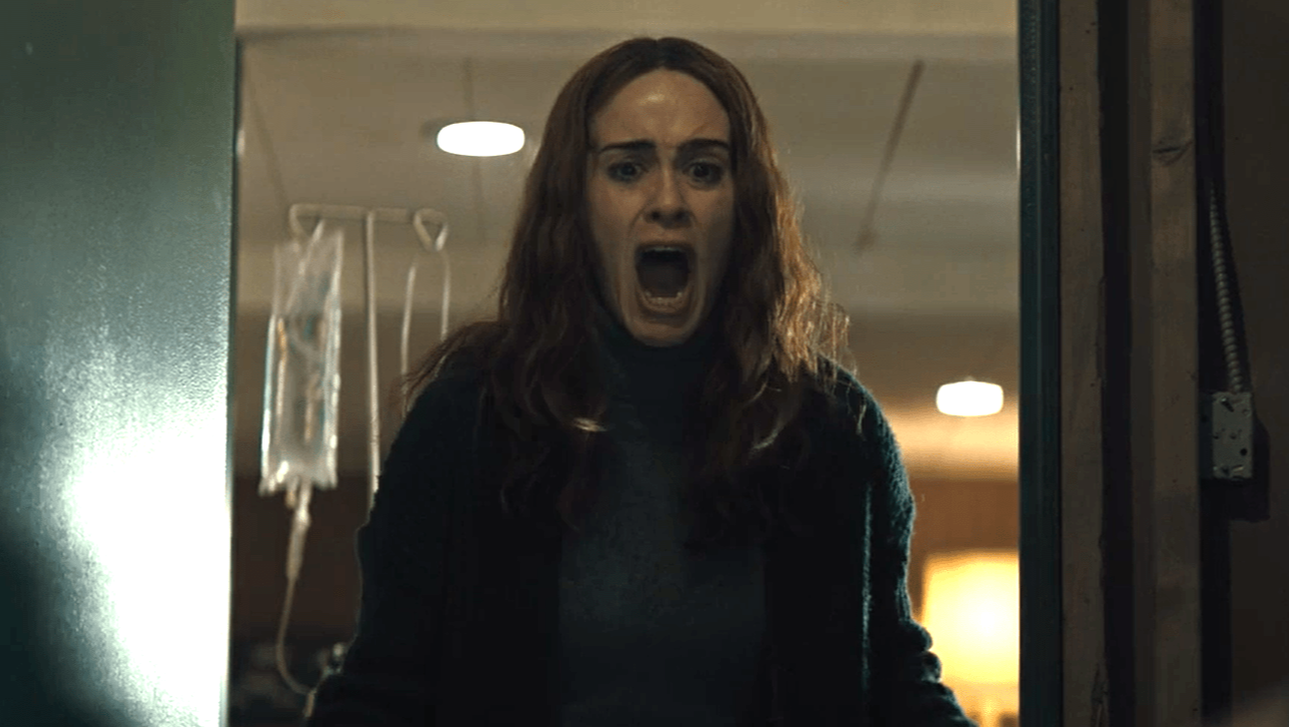 There’s a unique kind of terror to the intersection of disability and dependency that can sometimes feel hard to genuinely capture, particularly if it’s a situation you’re born into... ...Writer/director Aneesh Chaganty’s latest feature Run, written with Sev Ohanian, sets out to examine the thin and twisting lines of trust upon which such intersections need to function and what it takes to survive them when they go wrong. Chloe Sherman (newcomer Keira Allen) has been living with various disabilities her whole life, from asthma to diabetes to paralysis. As a result, she’s been primarily cared for and homeschooled by her mother Diane (Sarah Paulson). Now, though, Chloe is eagerly awaiting her acceptance into college and her first true taste of independence. At first things seem fine; Diane is supportive, and even expresses excitement at the thought of her daughter finally getting opportunities and experiences she had up to now been denied out of circumstance to the other moms who homeschool their disabled children. Up to now, Chloe’s days have been fairly routine and broken out into the familiar blocks of time surrounding her medicine schedule. She wakes up, takes medication, does her schoolwork and exercises, takes afternoon medication, has dinner and strictly limited dessert, and takes medication before bed. One day, while trying to sneak chocolates out of the bag while her mother is distracted, she finds a new prescription in the groceries. It’s made out to her mother, and she doesn’t recognize it, so when it shows up in her pre-bed batch of pills, she grows more than a little concerned. And with that, the seeds of distrust are planted and Run begins to spiral. It’s always a thrill to watch authentic representation in any film, but it was especially remarkable to see it in a film like Run, or indeed to see a film like Run at all. Chaganty’s choice to prioritize disabled actors for his lead role is a breath of fresh air and Keira Allen is powerful in her performance. A story like Run, which spins on an axis of emotional and medical manipulation rather unique to the disabled community, is difficult to tell in a genuine way without the input of disabled people themselves, but Allen’s casting and Chaganty’s forethought mean it was something he intended to bring to life as authentically and gently as possible, and for that it feels like a leap in the right representational direction. I’ve never quite seen anything like Run. Right from the opening sequence, which shows the rarely seen moments after a premature baby’s birth and brought me to tears, I was hanging on with bated breath. I was seeing myself on screen in a way I’d never even thought I would and recognizing scenes from my own life that felt just as genuine on screen as they did when I lived them. I, too, was kept in the tiny-baby-NICU ward while my mother watched from the other side of my little glass box and wondered if I would be okay. I know the daily exercise routines and the anxiety mixed in with excitement at the idea of being accepted into college and embarking on a heretofore unimagined journey of independence and freedom. Even as the story progressed into its darker areas and away from my personal experience, there were moments I recognized from my own life that so firmly connected me with Chloe I was full-body invested in the story (really, when it picks up in intensity I found myself cringing and subconsciously mimicking Chloe’s fight for survival). Run is a remarkable achievement not just as a film, but as a platform for strong, fierce disabled people to see themselves fighting against circumstances and demons no one ever talks about enough. Chloe is brilliant and independent and strong in ways even her mother could not imagine her capable of being, and it is these assets that allow her to fight her way to and beyond survival. More than that, though, she’s a fully fleshed-out person. She’s funny and unafraid to ask for and/or deny offered help when she sees fit, and we can feel her yearning for the pull of freedom that comes with college. It’s clearly her story from the jump, and we experience it with her in ways that center her strength and humanity beyond her disability. She’s fighting for freedom against someone who is using it against her, but she knows something her mother doesn’t: she is a person first, and so much more than the limitations society projects onto her. It is worth it to note that, given its subject matter of emotional and medical manipulation, it may be a hard watch for some. The face Diane presents to the world and the one she harbors for her daughter as the story progresses drift to dramatically opposite ends of the spectrum until she snaps completely, and facing the realities that come along with relying on your caregiver to tell the truth while knowing they could be lying to you at any turn is a difficult experience. Nonetheless, there is a uniquely powerful catharsis at the heart of Run that feels new and urgent to the landscape of disabled representation not just in horror but in film generally. I laughed, I cried, I was horrified, but all the while I knew I was watching something that was making big moves in telling and centering disabled stories. We may depend upon people for some things, but we are never, ever helpless. We can run, yes, but we can also fight. Run comes to Hulu November 20th. By Katelyn Nelson
0 Comments
Leave a Reply. |
Archives
March 2023
|


 RSS Feed
RSS Feed